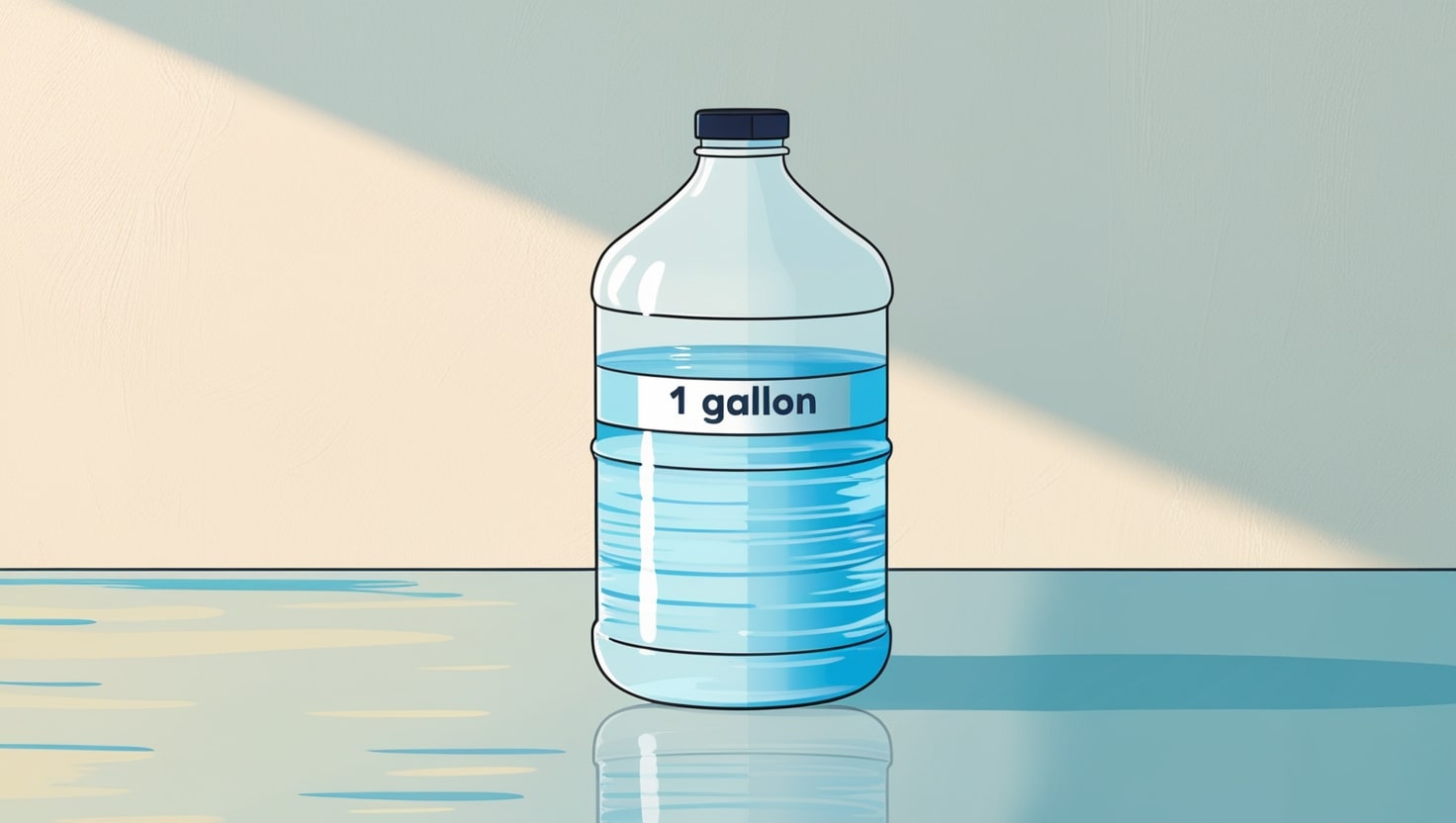Water is essential for life, and staying hydrated is crucial for maintaining health. But as health trends evolve, one common question people ask is: Is drinking a gallon of water a day too much? While drinking water is necessary, consuming too much can lead to unexpected consequences.
In this blog post, we’ll explore whether a gallon of water a day is suitable for everyone, who might benefit from it, and what the potential risks are.
Why Do People Recommend a Gallon of Water a Day?
The “gallon-a-day” recommendation has gained popularity, particularly among fitness enthusiasts and those looking to improve overall well-being. The logic behind this recommendation is simple: water aids in digestion, boosts energy, improves skin health, and helps regulate body temperature. Drinking more water is often touted as a way to flush toxins from the body, prevent dehydration, and even promote weight loss.
How Much Water Do You Really Need?
According to the National Academies of Sciences, Engineering, and Medicine, the average daily water intake should be about:
- 3.7 liters (or 125 ounces) for men
- 2.7 liters (or 91 ounces) for women
This total includes water from all beverages and foods, not just from drinking water directly. So, for many people, a gallon (which equals about 128 ounces or 3.8 liters) could be slightly more than necessary.
It is important to note that individual needs vary depending on several factors, including:
- Activity level: Athletes or people who exercise regularly may need more water to compensate for what they lose through sweat.
- Climate: Hot or humid conditions can increase water needs.
- Body size: Larger individuals may require more water than smaller individuals.
- Health conditions: Some medical conditions, like kidney disease or heart problems, may require adjusted water intake.
Benefits of Drinking a Gallon of Water a Day
For some people, drinking a gallon of water a day can have several positive effects:
1. Improved Hydration
Staying hydrated is key to maintaining bodily functions. It can improve digestion, prevent headaches, and support better physical performance.
2. Enhanced Skin Health
The skin can become clearer and more radiant with proper hydration. Many people report that drinking enough water helps reduce acne and dryness.
3. Boosted Energy Levels
Water is essential for keeping your body’s energy levels up. Dehydration can lead to fatigue, so staying hydrated ensures you maintain focus and energy throughout the day.
4. Weight Loss Support
Drinking water before meals can help control hunger and support weight loss. It’s a zero-calorie way to help you feel full and avoid overeating.
Risks of Drinking Too Much Water
While water is vital, drinking too much can be harmful. Here are some risks associated with drinking a gallon or more per day:
1. Hyponatremia (Water Intoxication)
Drinking excessive amounts of water can dilute the sodium in your blood, leading to a dangerous condition called hyponatremia. This can cause symptoms such as nausea, headache, confusion, and in extreme cases, seizures or coma.
2. Increased Bathroom Breaks
Consuming a gallon of water can result in frequent urination, which can be inconvenient and disruptive to your daily routine.
3. Overworking Your Kidneys
In order to filter out excess water, your kidneys are responsible. Consuming too much water puts extra strain on your kidneys, potentially leading to kidney damage over time if done regularly.
4. Disruption of Electrolyte Balance
Excessive water intake can interfere with the balance of electrolytes in your body, particularly sodium and potassium. In order to function properly, nerves and muscles need electrolytes.
How to Know If You’re Drinking Enough (or Too Much)
So, how can you tell if you’re drinking enough or too much water? You should look for the following signs:
Signs of Proper Hydration:
- Clear or pale yellow urine
- No feelings of thirst
- Normal energy levels
Signs of Overhydration:
- A frequent need to urinate (more than once an hour)
- Nausea or bloating
- Swollen hands, feet, or lips
- Headaches or confusion
Conclusion: Is a Gallon of Water a Day Too Much?
For most people, drinking a gallon of water a day is more than necessary. While it can be beneficial for those with high physical activity levels or in hot climates, the average person may not need that much. It’s important to listen to your body and adjust your water intake based on your personal needs.
Before drastically increasing your water intake, consider factors such as your health status, activity level, and climate. If you have any underlying health conditions or are unsure, it’s always best to consult with a healthcare provider.
Final Tip: Instead of focusing on a fixed amount like a gallon, try to stay in tune with your body’s signals, such as thirst, and monitor your hydration based on the color of your urine. Stay hydrated, but not over-hydrated!
